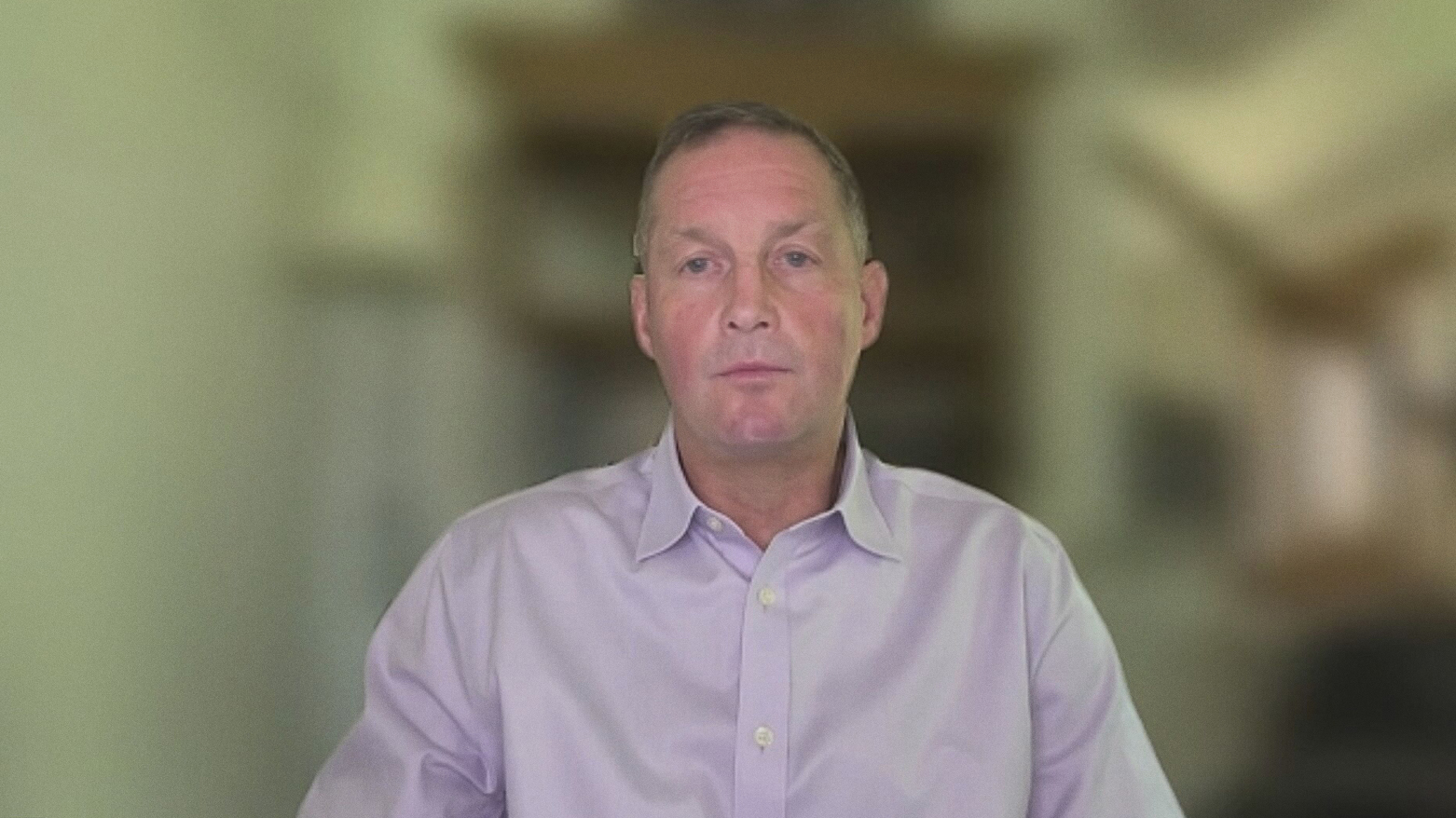'A Win for Kurdistan and a Win for the U.S.' James Sisco on Strategic Realignment
Talking about PM Barzani's visit to Washington, D.C., Sisco said, “It's very important that they meet with President Trump and are able to clearly articulate their vision.”

By Kamaran Aziz
ERBIL (Kurdistan24) – As Kurdistan Region Prime Minister Masrour Barzani leads a high-level delegation to Washington amid a shifting geopolitical landscape, a former senior U.S. intelligence official has urged Kurdish leaders to seize the moment and present a clear, pragmatic strategy that supports both Kurdish and American interests.
James Sisco, who formerly served as an advisor to the Director of U.S. National Intelligence for Middle East Policy, told Kurdistan24 that the Kurdistan Region has a rare opportunity to deepen its partnership with the United States—if it crafts a message that aligns with President Donald Trump’s transactional diplomatic style.
“I see that there's an opportunity for Kurdistan to improve on their relations in a manner where it would benefit both the United States and Kurdistan,” Sisco said. “Kurdistan can look at President Trump's visit to The Middle East as a blueprint on how to engage him in the future.”
In what he described as a three-pronged roadmap for Kurdish engagement, Sisco outlined a set of concrete policy actions he believes the Kurdistan Regional Government (KRG) should prioritize in their discussions with U.S. officials.
“The first [is] stopping the illicit trade between Iran and Iraq,” he said. “And doing so, Kurdistan can receive support from the US to help with the shutting down of the illicit trade routes, and that's a win for the US because it weakens the IRGC and Iran's influence in Iraq.”
He added, “The second one is broker a new deal between Ankara and Erbil. With the PKK hostilities ending, it opens up an opportunity for economic development and improve relations and different infrastructure projects.”
“And then the third, I think and one of the most important, is having the US back the road rail project, but having them include Kurdistan in the project. Right now, they're not being included, which would remove them from a lot of the economic benefit. And if Kurdistan is able to achieve those three objectives, I believe it's a win for Kurdistan and a win for the US.”
According to Sisco, the benefits of such a strategy would be far-reaching. “All three of those objectives will help Kurdistan economically, improve relationships with Ankara, could open up trade routes, economic development,” he said. “The illicit smuggling… would put more oil revenue into Kurdistan's hand. And the trade routes would open up a corridor for trade that would help Erbil, with its entire economy.”
He emphasized that although Kurdistan may not currently rank at the top of Washington’s foreign policy priorities, there remains a critical opportunity for visibility—especially as the U.S. grapples with wars in Gaza and Ukraine. “Right now, the administration is being torn between conflict in Gaza. They're trying to negotiate a peace settlement with Ukraine. And right now, to be honest, Kurdistan isn't, you know, on its top priorities. However, I think a consistent message that puts forward the benefits of having support from the US to Kurdistan [is crucial].”
With Iraqi parliamentary elections slated for October, Sisco said the timing is urgent. “One of the critical things coming up that is no one's really talking about is the parliamentary elections in Iraq in October. And if Kurdistan can receive support from the US, that would help them with their influence in the Iraqi government—another way to mitigate Iranian influence into Iraq, which I believe is one of President Trump's major objectives.”
Sisco stressed that building trust through direct dialogue with U.S. leadership must remain a top priority. “It's critical to maintain the existing relationships and improve on them in any way possible. Direct dialogue between the leaders is critical, making concessions in any way, and illustrating how Kurdistan can support US foreign policy objectives in the region, would be critical.”
He acknowledged institutional hurdles in the U.S. government that may complicate diplomatic engagement, including the recent appointment of Senator Marco Rubio and restructuring of agencies. “The new administration is kind of in transition with the appointment of Marco Rubio [and] the elimination of the USAID under [the] State Department. So the traditional diplomatic routes may not… exist, or they may need to find new routes to create those dialogues.”
Despite these challenges, Sisco maintained that there is room for strategic maneuvering. “It's very important that they meet with President Trump and are able to clearly articulate their vision—not only for the US relationship with Erbil and Kurdistan, but how that plays in the broader picture of a unified Iraq.”
He also acknowledged broader frustrations within Washington regarding Iraq’s tilt toward Tehran. “I do get a sense from the administration there is some frustration with Iraq as they lean closer to Iran, you know, more economic, you know, trade independence. And I hope that maybe the new ambassador coming in or the new administration will be able to create a very effective dialogue with Iraq to align them more with US foreign policy and try to mitigate Iranian influence.”
Sisco underscored that America’s investment in the Kurdistan Region—symbolized by the scale of its diplomatic presence—sends a clear message to allies and adversaries alike. “It really sends out a message to, not only the stakeholders in the region, but across the globe that US investment in Kurdistan, just by the size of the embassy alone is solid. I believe that messaging needs to be reinforced on both sides, but it definitely sends a clear picture to everyone in the region that the US will continue to back Kurdistan.”